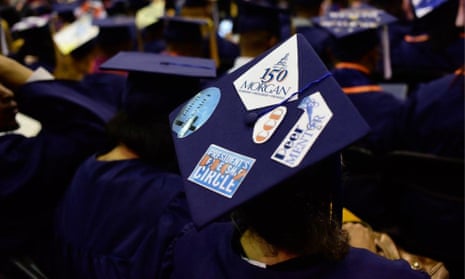Maryland has voted in favor of awarding four state universities more than half a billion dollars in compensation for years of institutional racial discrimination, signaling the end of a long legal battle.
In a victory resulting from a lawsuit filed more than a decade ago, four historically black colleges and universities (HBCUs) can expect a boost to their budgets of a total of $577m after the Maryland senate, in a rare legislative resolution to legal action, gave bipartisan support to a landmark settlement.
“It’s been a long time coming,” said Michael Jones, partner with Kirkland & Ellis LLP and one of the lead attorneys with the Lawyers’ Committee for Civil Rights Under Law. “We’ve had four failed mediations under two governors since 2013.
“It was a historic moment. Listening to it was like listening to the passage of major civil rights legislation,” Jones added.
In 2006, the Coalition for Equity and Excellence in Maryland Higher Education filed a lawsuit alleging the state deliberately duplicated innovative educational programs created at black universities, luring would-be students to their white counterparts.
The coalition is composed of alumni of HBCUs. The more than 100 institutions were established before the Civil Rights Act of 1964, mostly in the latter 19th century, to serve African Americans who were barred from predominantly white schools.
The suit alleged the state’s duplication of programs exacerbated HBCUs’ existing funding inequities.
Earlier this month, the Maryland senate voted unanimously to pass the legislation authorizing the settlement, split between the University of Maryland Eastern Shore, as well as Bowie, Coppin and Morgan State Universities.
A United Negro College Fund 2014 report found that these colleges produce more than 9,000 jobs, generating lifetime earnings of $95bn. They also have an estimated $1bn economic impact.
What makes the lawsuit especially rare is for it to be resolved by legislation. Similar suits have been been litigated through the US justice department.
Speaking at a committee hearing on the bill, the Maryland state house speaker and lead sponsor, Adrienne Jones, called it necessary to mitigate “lost time for tens of thousands of students waiting.
“We [needed] to act now to level the playing field for all students regardless of background or race or college they attend,” she said.
Mickey Burnim, interim president at Coppin State said at the hearing that the bill, known as HB1260, can begin to solve the problems discrimination has created.
“HB1260 affords the unique opportunity to address decades of previous untraceable and traceable state-supported inequities and the unnecessary duplication in programs at HBCUs in the state,” he said.
Attorney Michael Jones noted that African American consumers typically pay more in interest rates for mortgages, loans or cars” and that “societal challenges” add to what Maryland schools, HBCUs nationwide face “by virtue of being largely African American.
“HBCU students pay more for student loans, and schools have to pay more for bond issues than non-HBCUs, particularly in the south, even accounting for various levels of credit worthiness,” he said.
A bipartisan understanding of that legacy is credited with the bill’s unanimous passage. The Democratic state senator Obie Patterson told the Baltimore Sun he was inspired to see every Republican vote in support.
“I have never been so pleased in all my life to see all green lights on that board,” he said. “We all can come together for a common cause and do what’s right.”
The bill permits Maryland’s HBCUs to use the additional funding to establish new degree programs, recruit faculty and marketing contractors, and invest in scholarships and financial aid.
Funding would be distributed proportional to enrollment at each institution.
The bill now goes to the desk of the Republican governor ,Larry Hogan. His spokesperson confirmed he will give the legislative resolution consideration. Due to “overwhelming support”, the Morgan State president, David Kwabena Wilson, is optimistic the governor will sign the legislation.
“It wasn’t passed with a razor-thin edge, it was almost unanimous if you take both houses of the legislature together,” he said.
While the bill is veto-proof, if the HBCU coalition and the state cannot formally accept the legislated agreement by 1 December, it becomes null and void.
The bill requires that attorney’s fees, about $22m, be paid through a mandated $10m increase for each campus in each fiscal year to help with long-term planning, scheduled to begin 2022.
As HBCUs grapple with decreased federal funding and struggling endowments, Kristen Clarke, Lawyers’ Committee president and executive director, is confident in the precedent their settlement may have in addressing longstanding HBCU discrimination.
“We hope that an ultimate victory here might provide a pathway that can open up opportunities to achieve greater equity for HBCUS in other parts of the country,” she said.
